Overclocking
We gun for a maximum overclock with our Threadripper 1920X, and 4GHz is usually the limit with an all-core overclock, mainly limited by temperatures. We managed 4GHz on the Asus ROG Zenith Extreme and did the same again on the MSI X399 Gaming Pro Carbon AC, except we needed a little less voltage at 1.35V compared to 1.36V on the Asus board.
Apart from a few small differences relating to Threadripper, our X299 motherboard coverage of MSI's latest EFIs and software is practically identical so you can read more about this here.
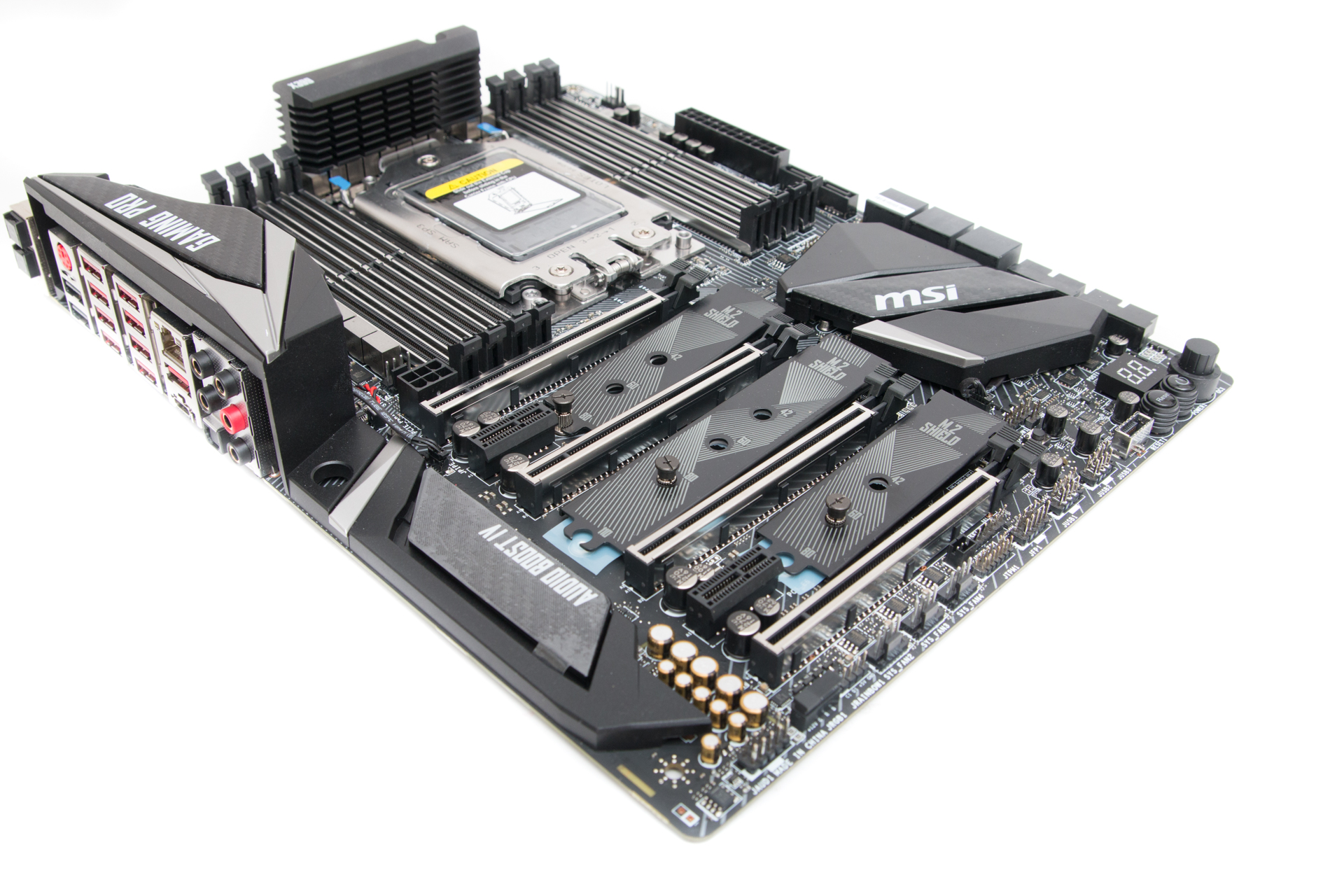
Performance Analysis
There was very little difference between the two Threadripper boards we've tested so far with tit for tat battles across most of the tests. There were two stand-out differences, though, and the first was power consumption, where the MSI board drew a fair bit more under load at stock speeds than its Asus counterpart. The tables were turned once overclocked, though, with the Asus board needing a little more voltage to get to 4GHz plus all the extra paraphernalia on the PCB leading to a noticeably higher power draw under load here. The Asus board also drew slightly more power when overclocked at stock speed, which could have been down to a momentary XFR boost fiddling with the results.
We were unable to get close to the Asus board in terms of audio performance, though, despite reinstalling the driver and trying others as well as playing with various settings that usually make a small difference. The Asus board was noticeably higher on the dynamic range reported by RightMark Audio Analyzer, although we doubt anyone would be able to audibly tell the difference. Overclocking, meanwhile, saw similar gains for both boards in the relevant tests, with the biggest margins being seen in Ashes of the Singularity: Escalation, where the MSI board was slightly ahead.
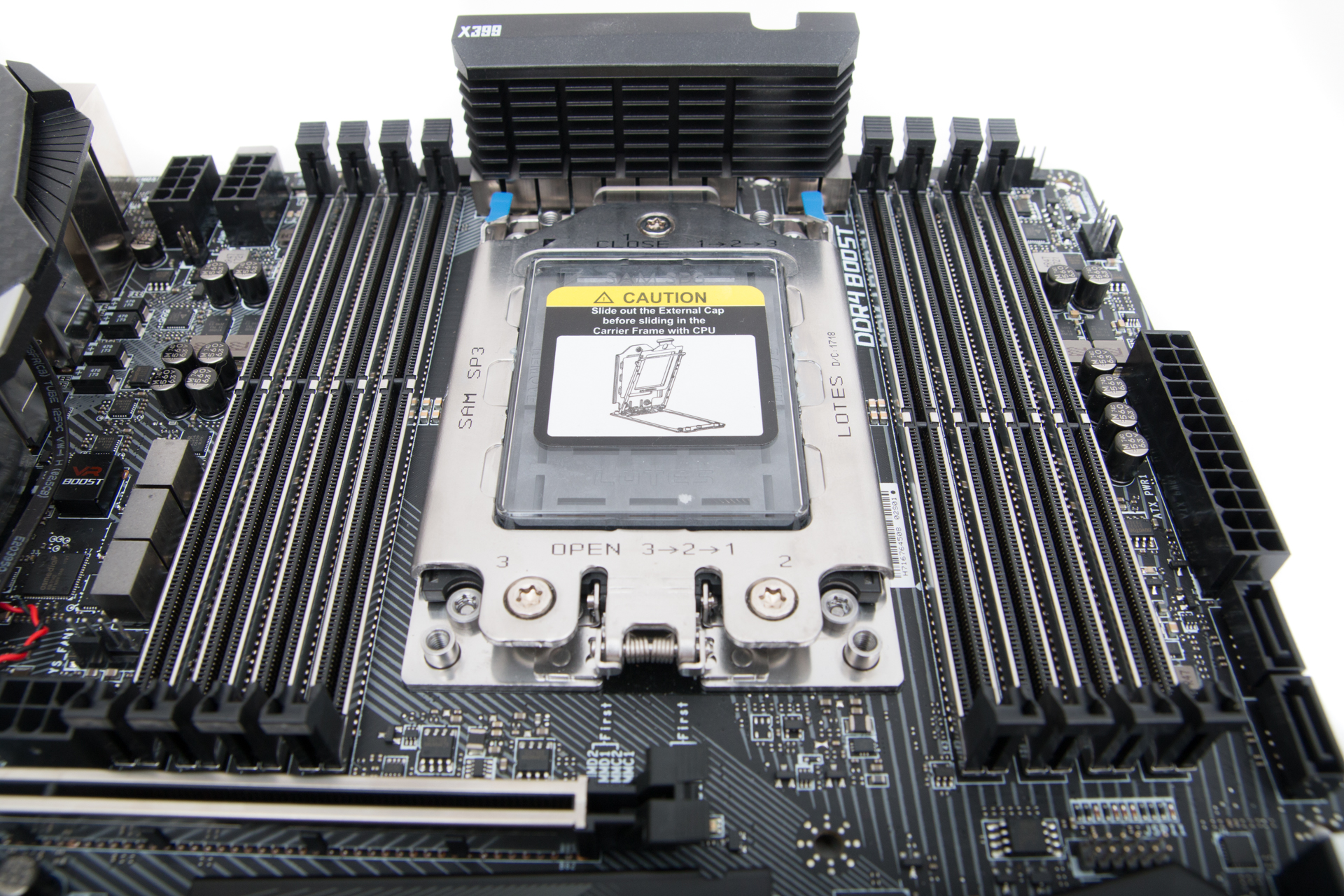
Conclusion
This is the first X399 board we've tested below £350, so comparing it directly to the Asus ROG Zenith Extreme is a little harsh - it's both more expensive and, as you'd expect, dripping with features. However, the X399 Gaming Pro Carbon AC isn't exactly devoid of useful gubbins itself. While the audio performance was average in one test, the lighting looks great and the additional fascias are a nice touch, too. The 120mm fan bracket, meanwhile, gives you opportunity for enhanced cooling that will undoubtedly be better than the whiny fan on the Asus board.It's also a handy board if you have a thirst for USB and SATA ports, while installing a trio of M.2 SSDs will see them all cooled by heatsinks, too. It's a solid overclocker with an excellent EFI and software and a worry-free layout, while the price makes it one of the more reasonably priced X399 boards out there. There are cheaper options, most notably the Asus Prime X399-A, but that lacks a number of features compared to the X399 Gaming Pro Carbon AC, which strikes a good balance for anyone wanting to create a high-end system with loads of expansion options without spending over the odds on a motherboard.


MSI MPG Velox 100R Chassis Review
October 14 2021 | 15:04

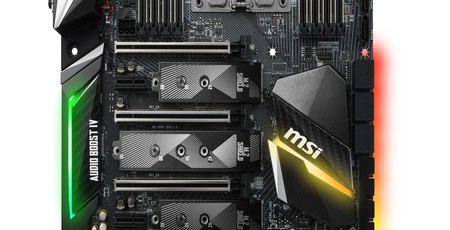
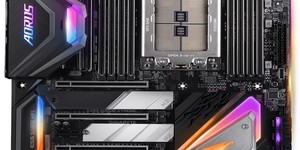
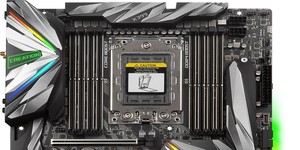
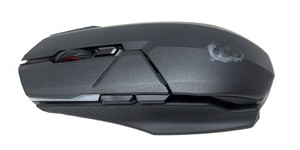




Want to comment? Please log in.